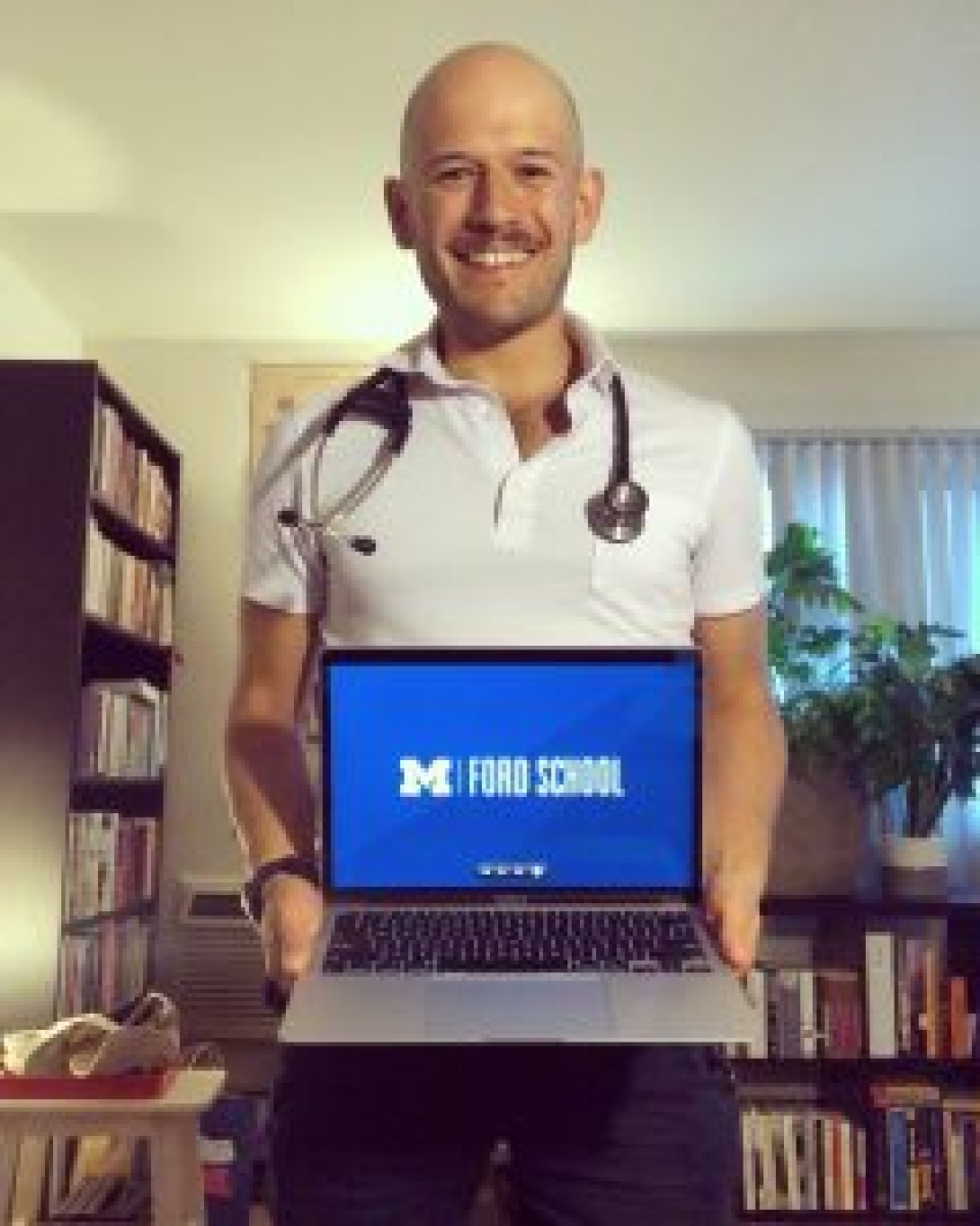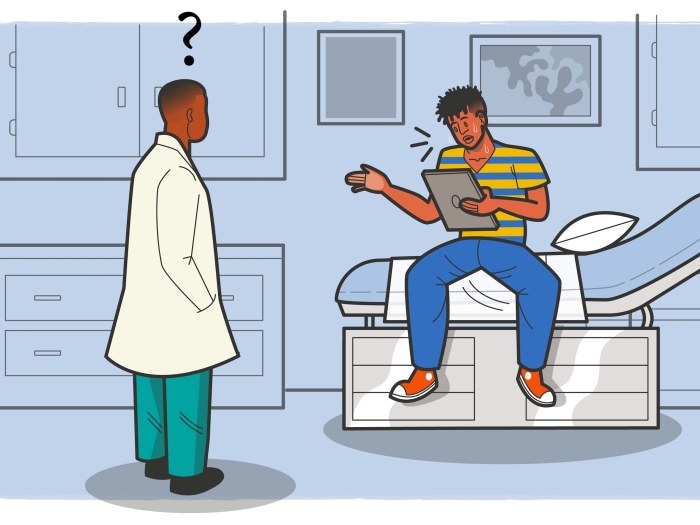Last spring, as COVID-19 descended on Ann Arbor, I witnessed the stories of this pandemic. On phone calls to tell patients about the transition to hybrid virtual prenatal care, pregnant patients told me of empty grocery stores, dissolving support networks, and job loss. As the pandemic worsened, it became clear that there was differential impact. Health disparities that had once felt abstract were suddenly in sharp focus and the medical community could not look away.
As a former social worker I am good at identifying problems, and as a medical student I am good at identifying the consequences of those problems. But I didn't have the tools to address the issues these pregnant patients were facing: a disorganized food distribution network, loss of neighborhood cohesion, an economy in freefall. It was not news that these variables affect health, but what was less clear to me was what I could do about it. Carrying these patient stories, I decided to enroll at the Ford School of Public Policy because, as COVID-19 made clear, health starts outside the hospital.
Every day at Ford, we explore the biggest problems affecting our world. In fact, today alone I discussed optimal public insurance payment levels, affordable housing tax breaks, and privacy rights. I most appreciate the opportunity to go deep into complex problems. Some of my work has clearly been about health: I've explored the ethics of cost-benefit analysis of family planning programs, evaluated the ways trade policy affected the domestic supply of medical masks, and examined why the Affordable Care Act did not dissolve when the insurance mandate was nullified. But it isn't health policy I'm interested in. The primary reason I came to Ford is to understand the scaffolding that supports my patients and shapes their lives. This year, I've written policy proposals for unemployment insurance, a campaign plan focused on childcare deserts ("no American family should need to make 1950s choices in a 21st century economy!"), and conducted an analysis of election day operations in Detroit. After all, more generous unemployment insurance keeps workers healthy, safe childcare helps stabilize families, and analyzing elections taught me about how complex systems, like hospitals, succeed and fail.
Complex problems require multi-tiered solutions, and while physicians and social workers are indispensable to any solution, so too are policymakers and community advocates who shape the communities our patients live in. The opportunity to pursue both ends of this continuum has been inspiring.

University of Michigan Medical School
Want top health & research news weekly? Sign up for Health Lab’s newsletters today!





